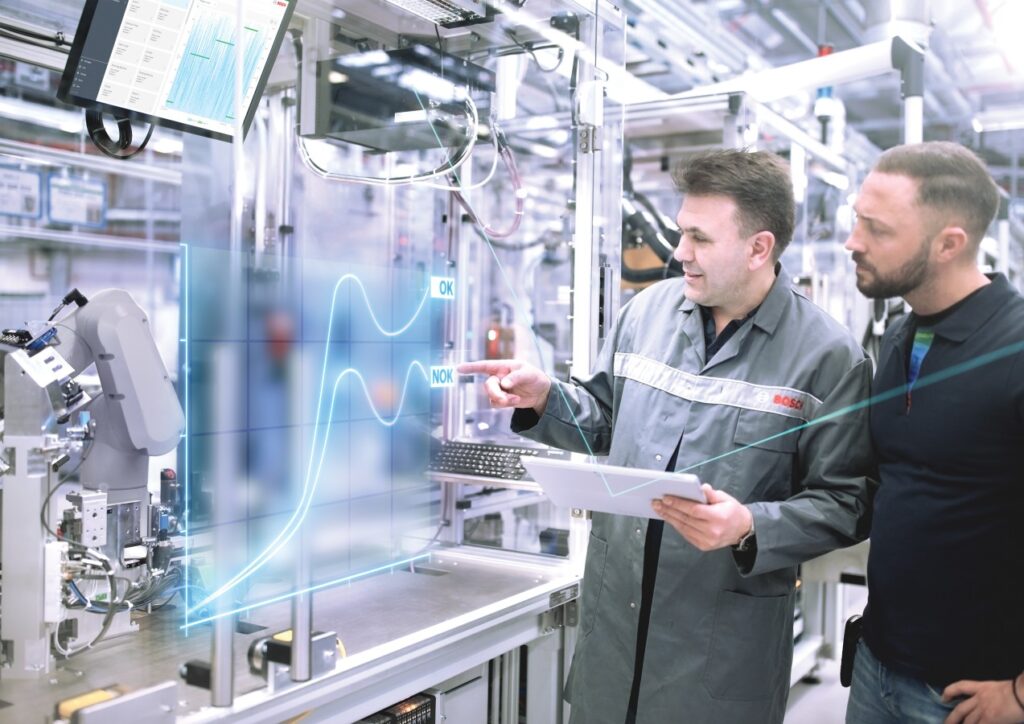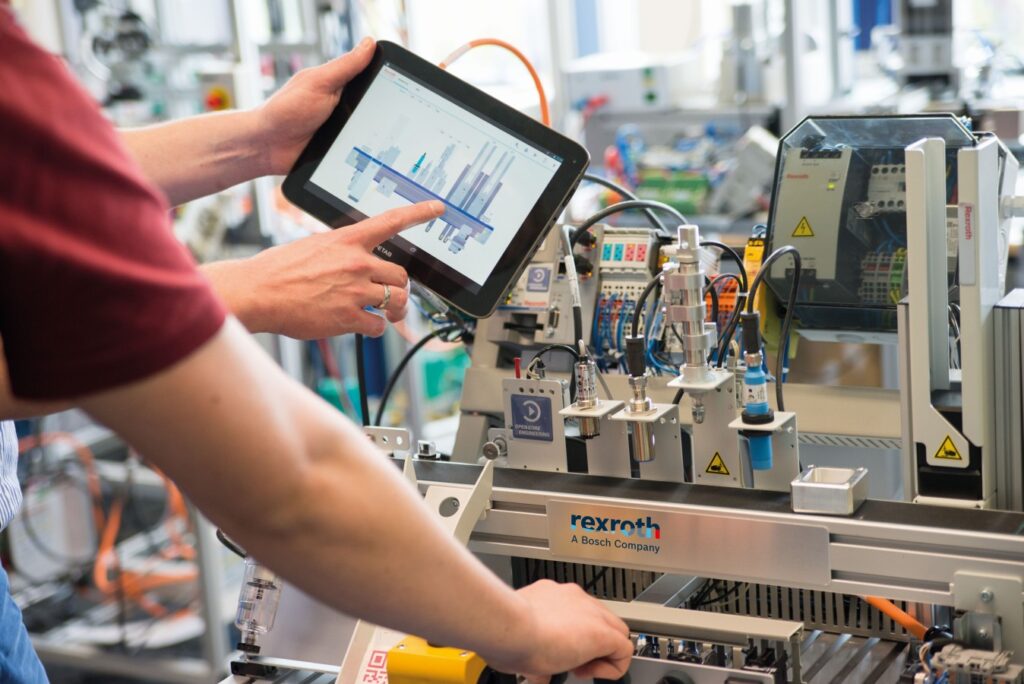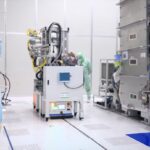ASIA ELECTRONICS INDUSTRYYOUR WINDOW TO SMART MANUFACTURING
Bosch Heightens Trainings to Tackle Labor Challenges
Aging society and labor shortages are social trends that are shaping the 21st century. Hence, Bosch is facing up to these challenges as a committed employer through training.
Particularly, Stefan Grosch, member of the Bosch board of management said the company has been conducting training and upskilling on intelligent technology.
“In 2022, the company offered more than 30,000 training seminars worldwide, with more than 520,000 Bosch associates taking part. One focus was technological expertise. More than 130,000 participants were able to acquire knowledge in technologies of the future such as electromobility, software engineering, and Industry 4.0,” said Grosch, who is also the director of industrial relations at Bosch.

In addition, Grosch said, “Looking at the metrics for the first half of the year, we expect to train around 50 percent more Bosch participants in 2023 than we did the year before.”
Training: nurturing individual talent for collective success
This commitment to training does not end at the company’s own factory gates. Bosch also offers other companies, customers, and interested parties the opportunity to acquire knowledge. For example, on Industry 4.0, the company makes more than 100 Bosch training programs on digitalization and connectivity in manufacturing. These are available externally through Bosch Connected Industry, Bosch Rexroth, and training institutes.

Accordingly, the European Commission said three-quarters of companies in the EU report difficulties in finding qualified workers. Furthermore, only 37 percent of adults engage in regular further professional development (source: European Commission, 2022).
“Bosch promotes lifelong learning. This is the key to lasting professional and business success,” Grosch says. It is also essential for a country’s economic output. “
Bosch offers all associates the opportunity for professional development. In 2022, Bosch associates attended one to two training courses on average. In addition, they completed two to three web-based courses. Roughly 6,000 seminars deal with technologies of the future.
Lasting an average of two days, these seminars are particularly thorough. Digitalization often determines not only the topic and content of training courses but also their form. In 2022, online courses accounted for two-thirds of all training hours for Bosch associates.

“Digitalization is becoming a training booster for companies and their workforce; it enables learning independent of place and time and gives people a chance to experience new technologies such as artificial intelligence firsthand,” says Bosch CDO and member of the board of management Dr. Tanja Rückert. Last year, Bosch spent some 300 million euros on professional development for its associates.
Upskilling: Bosch focuses on the industrial base
The labor shortage comes at a cost. Particularly, the Boston Consulting Group estimates the loss in potential output for the German economy to be 86 billion euros. The German Chamber of Commerce and Industry puts it even higher, at just under 100 billion euros – annually (source: DIHK, 2023). In an international comparison of the nations with the strongest economies, Germany comes next after the United States among economies that suffered because of losses due to labor shortages.
“In the competition for the best talent, companies have to put everything on the line. A future-oriented corporate approach also means identifying vocational training and professional development opportunities and offering them to the workforce. Having highly qualified personnel is a decisive competitive advantage,” Grosch says.
As a manufacturer and technology company, Bosch pays close attention to professional development for its associates in manufacturing operations. For example, this year, its mobility business launched the LernWerk initiative to train 24,000 associates in readiness for the digital transformation, initially at German sites.
Transfer: Bosch on Industry 4.0 training
As part of Bosch’s training program for other companies, Bosch is offering Industry 4.0 courses in Germany and elsewhere through partners. “From France and the Czech Republic to China, India, and Singapore, companies are training their manufacturing workers according to the German model. Bosch is one of the Industry 4.0 pioneers, and we are sharing our knowledge all around the world. Industry 4.0 training ‘made in Germany’ is becoming the global standard,” Rückert says.

In addition, Bosch is also developing training systems that are compatible with the syllabuses of industrial and educational institutions. Bosch Rexroth is launching its new Automax 600 training system. Using internationally standardized programming languages and open interfaces. Thus, giving users practical experience in the digitalization of production processes – including controlling robotic systems, operating autonomous transport systems, and using cloud applications such as data analysis and machine learning based on artificial intelligence.
Automation: Bosch technology makes work easier
There are various remedies for labor shortages. One is vocational training and professional development, and visa programs for skilled workers are another. Moreover, technology also has a key role to play. For example, Bosch Rexroth has developed an automation solution that no longer requires any previous specialist knowledge of automation. Users of ctrlX Automation can choose from over 30 popular programming languages. The company is taking a similar approach to hydraulics: In the future, customers can use H4U to integrate Bosch Rexroth software into the automation architecture they are already familiar with, eliminating the need to build up their own hydraulics expertise.
In addition, Rückert says, “Manufacturing is where value creation begins in our company. This is where we lay the foundation for business success. Our progressive and efficient manufacturing operations feature an impressive degree of connectivity and digitalization. One important prerequisite for this is ensuring associates receive the necessary training.”
“By opening up systems, making technology interoperable, and moving hardware applications into software, we reduce complexity and dependencies, such as on specialists,” Rückert says.
Moreover, technology makes life easier for workers whose tasks are monotonous, strenuous, or hazardous. Robotics supports loading and palletizing, artificial intelligence helps with the optical inspection of workpieces, augmented reality guides through work processes, and driverless transport systems take goods directly to where they are needed. “Only by increasing productivity can we manage the impact of an aging society. This calls for well-trained specialists, as well as technology that allows them to work rationally and efficiently. The interplay between humans and machines and between training and digitalization is a key success factor,” Grosch says.




